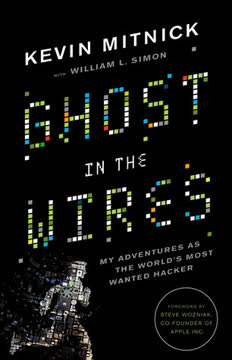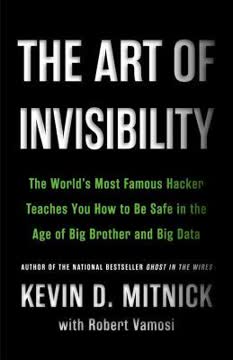نکات کلیدی
1. ظهور نظارت جمعی در عصر دیجیتال
من به فناوری کمک کردم تا برای یک دولت واحد امکانپذیر شود که تمام ارتباطات دیجیتال جهان را جمعآوری کند، آنها را برای مدت طولانی ذخیره کند و به دلخواه خود در آنها جستجو کند.
انقلاب فناوری: پس از حملات 11 سپتامبر، جامعه اطلاعاتی (IC) به دنبال ایجاد سیستمی برای جلوگیری از حملات آینده بود. این امر منجر به گسترش وسیع قابلیتهای نظارتی شد و جوانان تکنولوژیدان مانند اسنودن در خط مقدم این تحولات قرار گرفتند.
تغییر در جمعآوری اطلاعات: تمرکز از نظارت هدفمند بر افراد به نظارت جمعی بر کل جمعیتها تغییر کرد. این امر با پیشرفتهای زیر ممکن شد:
- پیشرفت در ذخیرهسازی و پردازش دادهها
- افزایش دیجیتالی شدن ارتباطات شخصی
- توسعه الگوریتمهای پیچیده برای تحلیل دادهها
دامنه بیسابقه: سیستمهای نظارتی جدید میتوانستند:
- مقادیر زیادی از دادهها را بهطور نامحدود جمعآوری و ذخیره کنند
- در ارتباطات تقریباً هر کسی در زمین جستجو کنند
- با حداقل نظارت یا آگاهی عمومی عمل کنند
2. سفر اسنودن از میهنپرستی به افشاگر
من متوجه شدم که پیشقدم شدن و افشای میزان سوءاستفادههای کشورم به خبرنگاران، به معنای حمایت از چیزی رادیکال، مانند نابودی دولت یا حتی جامعه اطلاعاتی نیست. این یک بازگشت به پیگیری ایدهآلهای اعلام شده دولت و جامعه اطلاعاتی بود.
بیداری تدریجی: تحول اسنودن از یک کارمند میهنپرست اطلاعاتی به یک افشاگر ناگهانی نبود، بلکه یک فرآیند تدریجی کشف و تأمل اخلاقی بود.
درکهای کلیدی:
- میزان نظارت فراتر از آنچه که بهطور عمومی شناخته شده بود، بود
- بسیاری از برنامههای نظارتی در نقض حقوق قانون اساسی عمل میکردند
- نظارت یا پاسخگویی کمی در سیستم وجود داشت
- پتانسیل سوءاستفاده از این قدرتها بسیار زیاد بود
معضل اخلاقی: اسنودن با تضاد بین سوگند سکوت و وظیفهاش نسبت به قانون اساسی و عموم مردم دست و پنجه نرم کرد. در نهایت، او تصمیم گرفت که افشای حقیقت مهمتر از حفظ سکوت است.
3. خصوصیسازی اطلاعات و پیامدهای آن
قراردادها به پوشش من تبدیل شده است، همانطور که برای تقریباً تمام جاسوسان تکنولوژیمحور همنسل من بود.
انتقال به بخش خصوصی: جامعه اطلاعاتی بهطور فزایندهای به پیمانکاران خصوصی متکی شد تا از محدودیتهای استخدام فدرال عبور کند و به مهارتهای فنی تخصصی دسترسی پیدا کند.
پیامدهای خصوصیسازی:
- خطوط مسئولیت مبهم
- پتانسیل تضاد منافع
- درهای چرخان بین دولت و بخش خصوصی
- افزایش هزینهها برای مالیاتدهندگان
سلطه پیمانکاران: تا سال 2013، کارمندان خصوصی بهطور مکرر کارهای اطلاعاتی را انجام میدادند و بیش از 21,800 پیمانکار تماموقت در جامعه اطلاعاتی وجود داشت.
4. معضل اخلاقی سکوت دولت در برابر آگاهی عمومی
آزادی یک کشور تنها میتواند با احترام به حقوق شهروندانش اندازهگیری شود و من معتقدم که این حقوق در واقع محدودیتهایی برای قدرت دولت هستند که دقیقاً مشخص میکنند کجا و چه زمانی یک دولت نمیتواند به آن حوزه آزادیهای شخصی یا فردی که در انقلاب آمریکا "آزادی" نامیده میشد و در انقلاب اینترنت "حریم خصوصی" نامیده میشود، تجاوز کند.
عمل متعادل: اسنودن با تنش بین نیازهای امنیت ملی و شفافیت دموکراتیک دست و پنجه نرم کرد.
ملاحظات کلیدی:
- حق عمومی برای آگاهی از فعالیتهای دولت
- نیاز به برخی سطوح سکوت در عملیات اطلاعاتی
- پتانسیل سوءاستفاده زمانی که نظارت بدون نظارت عمل میکند
- نقش افشاگران در حفظ پاسخگویی دموکراتیک
رویکرد اسنودن: او تصمیم گرفت که اسناد را به خبرنگاران افشا کند تا به این ترتیب امکان بررسی و گزارش مسئولانه اطلاعات فراهم شود.
5. قدرت و خطرات دسترسی نامحدود به دادههای شخصی
من متوجه شدم، در حالی که یکی از آنها جزئیات روالهای امنیتی اهدافش را برای من توضیح میداد، که عکسهای خصوصی به نوعی ارز غیررسمی در دفتر بودند، زیرا دوستش مدام در حال چرخیدن روی صندلیاش بود و با لبخند به ما میگفت: "به او نگاه کن"، که به آن پاسخ میداد: "پاداش!" یا "خوب!"
پتانسیل سوءاستفاده: دسترسی نامحدود به دادههای شخصی میتواند منجر به سوءاستفاده شود، حتی در کانالهای رسمی.
نمونههای سوءاستفاده:
- LOVEINT: تحلیلگران از ابزارهای نظارتی برای جاسوسی از علاقههای عاشقانه استفاده میکردند
- اشتراکگذاری عکسها و اطلاعات شخصی بین همکاران
- پتانسیل برای باجخواهی یا دستکاری اهداف
کمبود پاسخگویی: ماهیت مخفی برنامههای نظارتی باعث میشد که پیگرد قانونی یا مجازات افرادی که به سوءاستفاده از دسترسی خود پرداخته بودند، دشوار باشد.
6. تأثیر افشاگرانه بر روابط شخصی
هرچقدر هم که از خانه دور بودم، افکارم به لیندسی مشغول بود. من از گفتن داستان او—داستان آنچه پس از رفتن من برایش اتفاق افتاد: بازجوییهای FBI، نظارت، توجه رسانهها، آزار آنلاین، سردرگمی و درد، خشم و غم—هراسان بودم.
فداکاری شخصی: تصمیم اسنودن برای تبدیل شدن به یک افشاگر تأثیرات عمیقی بر زندگی شخصی و روابطش داشت.
پیامدها برای عزیزان:
- بررسی شدید از سوی نیروهای قانون و رسانهها
- استرس عاطفی و عدم قطعیت
- پتانسیل پیامدهای قانونی و مالی
- فشار بر روابط به دلیل سکوت و جدایی
عمل متعادل: اسنودن باید مسئولیتهای شخصیاش را در برابر آنچه که به عنوان یک وظیفه اخلاقی بزرگتر برای افشای نادرستیهای دولت میدید، بسنجید.
7. دامنه جهانی و پیامدهای فناوری نظارت
اینترنت بهطور تقریباً به اندازه هوایی که بسیاری از ارتباطاتش از آن عبور میکند، به زندگی ما پیوسته است. و همانطور که همه ما به یاد داریم—هر بار که فیدهای رسانههای اجتماعی ما ما را به پستی که ما را در نوری نامناسب نشان میدهد، تگ میکند—دیجیتالی کردن چیزی به معنای ثبت آن در قالبی است که برای همیشه باقی میماند.
ماهیت فراگیر: فناوریهای نظارتی مدرن تقریباً بر هر جنبهای از زندگی دیجیتال در سطح جهانی تأثیر میگذارد.
پیامدهای کلیدی:
- فرسایش حریم خصوصی در مقیاس جهانی
- پتانسیل جاسوسی سیاسی و اقتصادی
- چالشها برای حاکمیت ملی در فضای سایبری
- نیاز به هنجارها و مقررات بینالمللی
پیامدهای بلندمدت: دیجیتالی شدن اطلاعات شخصی سوابق دائمی ایجاد میکند که میتوان بهطور نامحدود به آنها دسترسی پیدا کرد و تحلیل کرد و نگرانیهایی را در مورد سوءاستفادههای آینده و حق فراموش شدن به وجود میآورد.
آخرین بهروزرسانی::
FAQ
What's "Permanent Record" by Edward Snowden about?
- Memoir of Whistleblowing: "Permanent Record" is Edward Snowden's memoir detailing his journey from a young technologist to a whistleblower who exposed the U.S. government's mass surveillance programs.
- Surveillance State: The book provides an in-depth look at the intrusive surveillance apparatus of the NSA and CIA, highlighting how it threatens privacy and democratic institutions.
- Personal Story: Snowden shares his personal experiences, ethical dilemmas, and the events that led him to leak classified documents to journalists.
- Impact on Society: The memoir discusses the implications of mass surveillance on individual freedoms and the importance of transparency and accountability in government.
Why should I read "Permanent Record" by Edward Snowden?
- Insight into Surveillance: The book offers a rare insider perspective on the operations of the NSA and CIA, making it essential reading for those interested in privacy and civil liberties.
- Ethical Dilemmas: Snowden's story raises important questions about the balance between national security and individual rights, prompting readers to consider their own views on these issues.
- Historical Significance: As a key figure in one of the most significant whistleblowing cases in history, Snowden's account provides valuable context and understanding of the events that shaped modern surveillance practices.
- Engaging Narrative: The memoir is well-written and engaging, combining technical details with personal anecdotes to create a compelling narrative.
What are the key takeaways of "Permanent Record" by Edward Snowden?
- Mass Surveillance: The book reveals the extent of the U.S. government's mass surveillance capabilities and the lack of oversight and accountability in these programs.
- Privacy vs. Security: Snowden emphasizes the importance of protecting individual privacy and civil liberties, even in the face of national security concerns.
- Whistleblowing Challenges: The memoir highlights the personal and professional risks involved in whistleblowing, as well as the ethical considerations that guided Snowden's actions.
- Call to Action: Snowden urges readers to be vigilant about their privacy rights and to advocate for greater transparency and accountability in government.
What are the best quotes from "Permanent Record" by Edward Snowden and what do they mean?
- "The government may steal a dollar, but it cannot erase the idea that earned it." This quote reflects Snowden's belief in the power of ideas and the importance of standing up for one's principles, despite government attempts to suppress dissent.
- "The freedom of a country can only be measured by its respect for the rights of its citizens." Snowden underscores the fundamental connection between individual rights and true freedom, critiquing governments that infringe on personal liberties.
- "The Internet of today is unrecognizable." This quote highlights Snowden's lament over the transformation of the Internet from a space of creativity and connection to one dominated by surveillance capitalism.
- "I decided to tell the truth." This simple yet powerful statement encapsulates Snowden's motivation for leaking classified documents, driven by a commitment to transparency and accountability.
How did Edward Snowden's career lead to his whistleblowing actions?
- Early Career: Snowden began his career in the Intelligence Community (IC) as a young technologist, quickly rising through the ranks due to his technical expertise.
- Mass Surveillance Realization: Over time, he became aware of the shift from targeted surveillance to mass surveillance, which he helped make technologically feasible.
- Moral and Ethical Conflict: Snowden struggled with the ethical implications of his work, ultimately deciding that his allegiance to the Constitution and public interest outweighed his secrecy agreements.
- Decision to Leak: His growing awareness of the government's abuses and the lack of public consent led him to collect evidence and disclose it to journalists.
What is "Homo Contractus" in "Permanent Record" by Edward Snowden?
- Definition: "Homo Contractus" refers to the privatization of government services, where private contractors perform tasks traditionally handled by government employees.
- Corruption and Loopholes: Snowden describes how this system allows for corruption and circumvents federal hiring caps, leading to a lack of accountability and oversight.
- Impact on Intelligence Community: The reliance on contractors in the IC results in sensitive systems being managed by individuals who do not directly work for the government.
- Critique of Privatization: Snowden criticizes this trend as a means of transferring public money to private entities, undermining the integrity of public service.
How does "Permanent Record" by Edward Snowden address the concept of surveillance capitalism?
- Surveillance Capitalism Defined: Snowden explains how companies monetize human connection by inserting themselves into social exchanges and selling user data.
- Transformation of the Internet: The book discusses the shift from a creative and cooperative Internet to one dominated by commercial interests and surveillance.
- Loss of Privacy: Snowden highlights how personal data is collected and sold without users' knowledge, leading to a pervasive sense of violation.
- Government Involvement: The memoir reveals how governments, including the U.S., exploit surveillance capitalism to gain intelligence, often without public consent.
What role did the Internet play in Edward Snowden's life, according to "Permanent Record"?
- Early Influence: Snowden describes the Internet as a formative influence, providing a sense of community and connection during his youth.
- Technological Expertise: His deep understanding of computers and the Internet facilitated his rapid rise in the Intelligence Community.
- Disillusionment: Snowden laments the commercialization and surveillance of the Internet, contrasting it with the open and creative space he once knew.
- Catalyst for Action: The Internet's transformation into a tool for mass surveillance motivated Snowden to take action and expose government abuses.
How does "Permanent Record" by Edward Snowden explore the ethical dilemmas of whistleblowing?
- Conflict of Allegiances: Snowden grapples with his loyalty to the government versus his commitment to the Constitution and public interest.
- Moral Responsibility: He reflects on the point at which he felt morally obliged to break the law and disclose classified information.
- Risk and Sacrifice: The memoir details the personal and professional risks Snowden faced, including potential imprisonment and exile.
- Principles and Ideals: Snowden emphasizes that his actions were guided by a desire to uphold democratic ideals and protect individual freedoms.
What is the significance of the "Tunnel" chapter in "Permanent Record" by Edward Snowden?
- Symbolic Tunnel: The chapter uses the metaphor of a tunnel to represent Snowden's journey toward his decision to leak classified documents.
- Hawaii Experience: Snowden describes his time working at an NSA facility in Hawaii, where he gained a comprehensive understanding of mass surveillance.
- Turning Point: The chapter marks a pivotal moment in Snowden's life, as he becomes fully aware of the implications of his work and the need for action.
- Insight into Surveillance: It provides detailed insights into the NSA's operations and the extent of its surveillance capabilities.
How does "Permanent Record" by Edward Snowden address the impact of mass surveillance on society?
- Erosion of Privacy: Snowden argues that mass surveillance undermines individual privacy and civil liberties, posing a threat to democratic institutions.
- Chilling Effect: The book discusses how surveillance creates a climate of fear and self-censorship, stifling free expression and dissent.
- Global Implications: Snowden highlights the international reach of U.S. surveillance programs, affecting citizens worldwide without their knowledge or consent.
- Call for Reform: The memoir advocates for greater transparency, accountability, and public debate on surveillance practices to protect individual rights.
What is the "Young Readers Edition" of "Permanent Record" by Edward Snowden, and how does it differ from the original?
- Adaptation for Youth: The Young Readers Edition is a version of Snowden's memoir adapted for younger audiences, with simplified language and content.
- Content Modifications: It omits certain chapters and details, such as "Homo Contractus" and "The Tunnel," to make the material more accessible to teens.
- Focus on Key Themes: The edition retains the core themes of privacy, surveillance, and ethical decision-making, while removing some complex or sensitive content.
- Educational Purpose: The adaptation aims to engage young readers in discussions about privacy rights and the impact of technology on society.
نقد و بررسی
کتاب سند دائمی به خاطر داستانگویی جذاب و افشاگریهای روشنگرانهاش دربارهی نظارت دولتی مورد تحسین گسترده قرار گرفته است. خوانندگان شجاعت و صداقت اسنودن را ستایش میکنند و انگیزههای او را قابل درک و اقداماتش را توجیهپذیر مییابند. بسیاری او را به عنوان یک قهرمان برای افشای نقض حریم خصوصی میدانند. این کتاب نگاهی به دوران کودکی اسنودن، حرفهاش در حوزهی اطلاعات و تصمیمش برای تبدیل شدن به یک افشاگر ارائه میدهد. در حالی که برخی بخشها را خودخواهانه میدانند، اما بیشتر خوانندگان آن را کتابی جذاب و مهم مییابند که سؤالات حیاتی دربارهی حریم خصوصی و دموکراسی در عصر دیجیتال را مطرح میکند.
Similar Books














